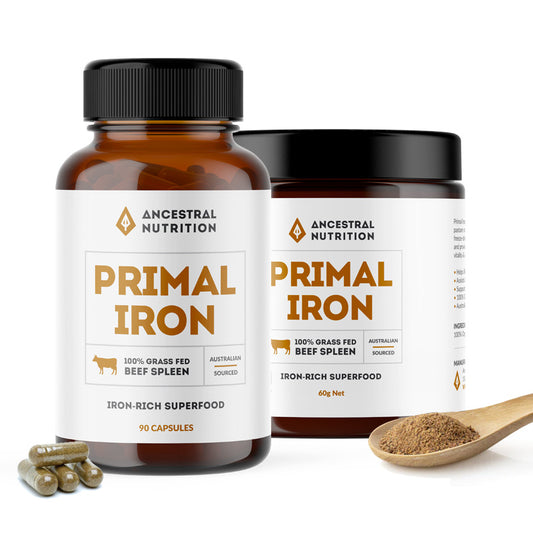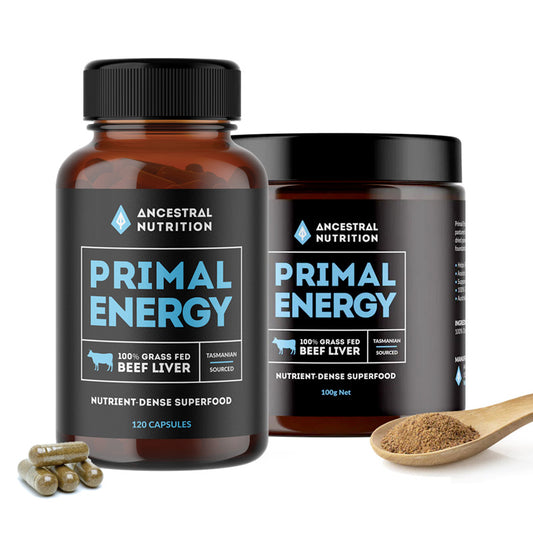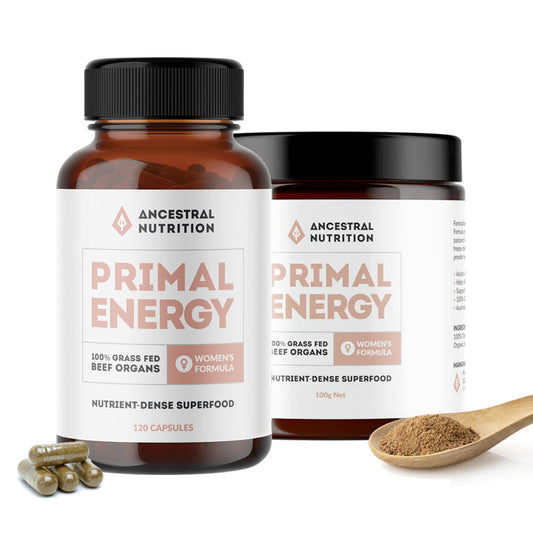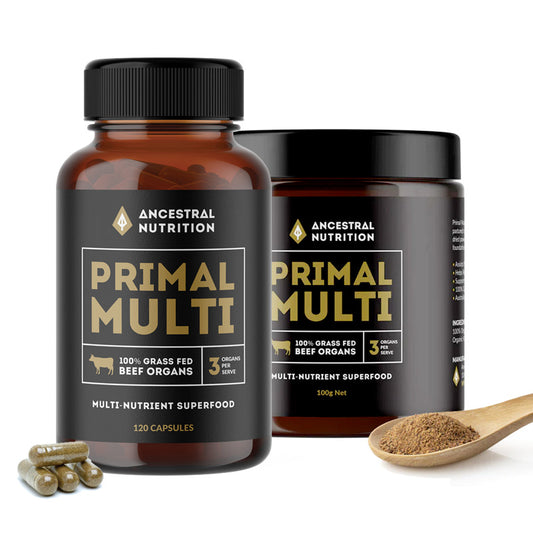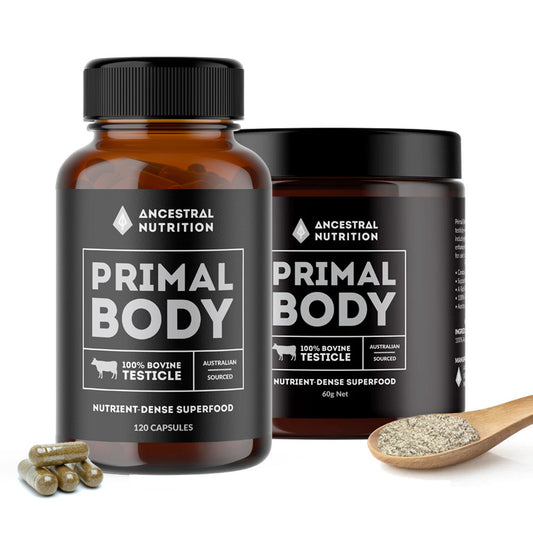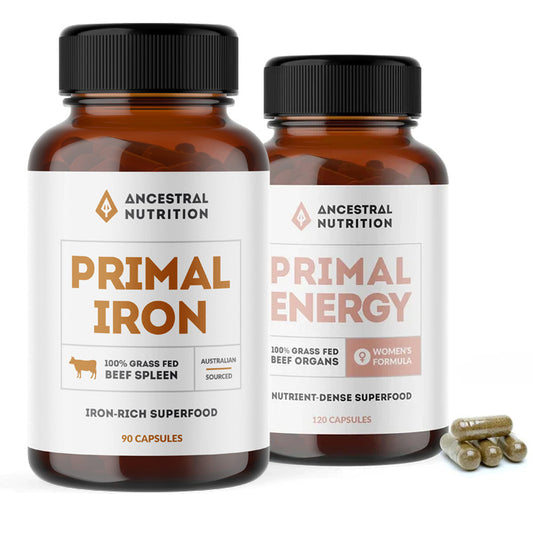Rethinking Iron: Supporting Iron Metabolism Naturally
article by Ancestral Nutrition
Why Iron Matters
Iron is an essential mineral that supports oxygen transport, cellular energy production, and cognitive function. Many individuals, especially women, have increased iron requirements due to menstruation, pregnancy, or active lifestyles. Yet supplementing with iron isn't always straightforward. The form of iron consumed and its accompanying nutrients can make a significant difference in how effectively it supports overall wellbeing.
Understanding Iron Sources
There are two key types of dietary iron:
- Heme Iron: Found in animal-based foods like red meat and organs, this form is more easily absorbed by the body.
- Non-Heme Iron: Found in plant-based foods and most synthetic supplements, this form requires additional support for optimal absorption.
Bioavailability (how well the body absorbs and utilises a nutrient) is key. Heme iron tends to be better tolerated and more efficiently used, particularly when combined with supporting nutrients.
What Affects Iron Uptake?
Even when we consume iron-rich foods or supplements, absorption can vary based on several factors:
- Nutrient Interactions: Nutrients like vitamin A, vitamin B12, folate (B9), copper, and vitamin C play essential roles in red blood cell formation and iron metabolism.
- Digestive Health: Low stomach acid or compromised gut health may reduce nutrient absorption.
- Dietary Choices: Excessive caffeine, alcohol, or highly processed foods may hinder iron uptake.
Food First: A Nutrient-Dense Approach
Nature packages nutrients together in a way our bodies recognise and can utilise effectively. For example, organ meats like liver and spleen contain iron along with vitamin A, B vitamins, copper, and other minerals needed for red blood cell formation.
Including a variety of iron-rich whole foods in your diet—such as grass-fed red meat, eggs, leafy greens, and organ meats—can help support optimal iron levels. Pairing these foods with vitamin C-rich options (like capsicum, citrus, or broccoli) may further enhance non-heme iron absorption.
A Natural Supplement Option
For those seeking convenient nutritional support, freeze-dried beef organ supplements offer a whole food-based source of heme iron and essential cofactors. Our Primal Iron and Primal Energy formulas are made from 100% grass-fed Tasmanian beef organs, freeze-dried to preserve nutrients and free from synthetic additives.
These formulas are:
- Rich in heme iron
- Naturally high in vitamin A, B12, folate, and copper
- Designed to complement a nutrient-dense diet
We recommend consuming these with food, ideally in the morning, to support digestion and energy throughout the day.
This information is for educational purposes only and is not intended to diagnose, treat, or cure any medical condition. Please consult your healthcare provider for personalised guidance, particularly if you have a diagnosed iron deficiency or are considering changing your supplement regimen.

